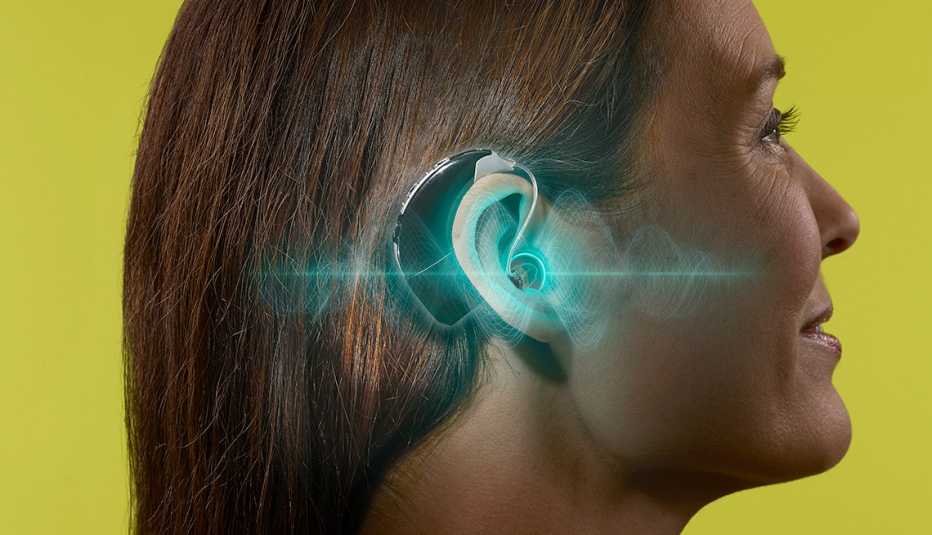AARP Hearing Center


With age comes wisdom — and for some of us, it also means hearing loss.
“About 1 in 3 people in the United States between the ages of 65 and 74 have hearing loss,” says Kelly King, an audiologist and program officer at the National Institute on Deafness and Other Communication Disorders, “and nearly half of those older than 75 have difficulty hearing.”
The solution is simple, right? Just wear hearing aids. But fewer than 1 in 3 adults 70 and older who can benefit from hearing aids has ever tried them, King says, because they’re too expensive, they don’t want the stigma of “looking old” or they think hearing aids just won’t help their hearing.
But hearing aids don’t just improve your hearing. Several studies show that wearing them may have many other health benefits.
Here’s how hearing aids may improve your health.
1. Hearing aids may help you live longer
A 2024 study published in The Lancet Healthy Longevity journal found that American adults who have hearing loss and are regular users of hearing aids have a significantly lower risk of dying than those who never use hearing aids.
The UCLA study looked at health information from almost 10,000 participants in the U.S. Centers for Disease Control and Prevention’s (CDC) National Health and Nutrition Examination Survey between 1999 and 2012 who answered questions about hearing tests and wearing hearing aids.
The researchers found a 24 percent lower risk of early death between the regular users of hearing aids and those who never wore them. They found no difference in mortality rates between non-regular hearing aid users and those who didn’t have hearing aids.
“The risk of dying was higher among those who never used hearing aids than regular hearing aid users,” says Janet Choi, M.D., an otolaryngologist with the Keck School of Medicine of USC and the lead study author. “The differences were significant, even after accounting for relevant factors such as age, severity of hearing loss, socioeconomic status and other medical conditions.”
Although Choi says more research is needed to understand cause and effect, she tells her patients there is a real benefit to treating hearing loss.
“I encourage anyone experiencing hearing difficulties to get their hearing tested and determine the type and severity of their hearing loss,” she says. “You might be surprised at the variety of hearing device options available to assist with your hearing loss that can enhance daily communication and quality of life.”
Amit Shah, M.D., a geriatrician at the Mayo Clinic in Phoenix, says it’s a quality study.
“We do know that hearing aids do cause less loneliness, less social isolation, less depression,” he says, adding that research shows those who are more depressed and socially isolated have an increased mortality risk.
So, Shah says, it makes sense that those who wear hearing aids may live longer because they have a decreased risk of isolation. And when you’re more socially engaged, you’re also more likely to be physically active, which in turn makes you more likely to live longer. “It’s not that dropping a device in your ear magically increases your life expectancy; it’s what happens because you have that device,” he says.





































































More From AARP
Check Out the AARP Hearing Center
Hearing aids, hearing test, and hearing loss tips and information
New Treatment for Tinnitus Can Help Bring Relief
A recently approved method using mild electrical pulses helps retrain the brain to ignore the phantom noise
Your Smart Guide to Hearing Health
23 ways to keep hearing clearly
Recommended for You